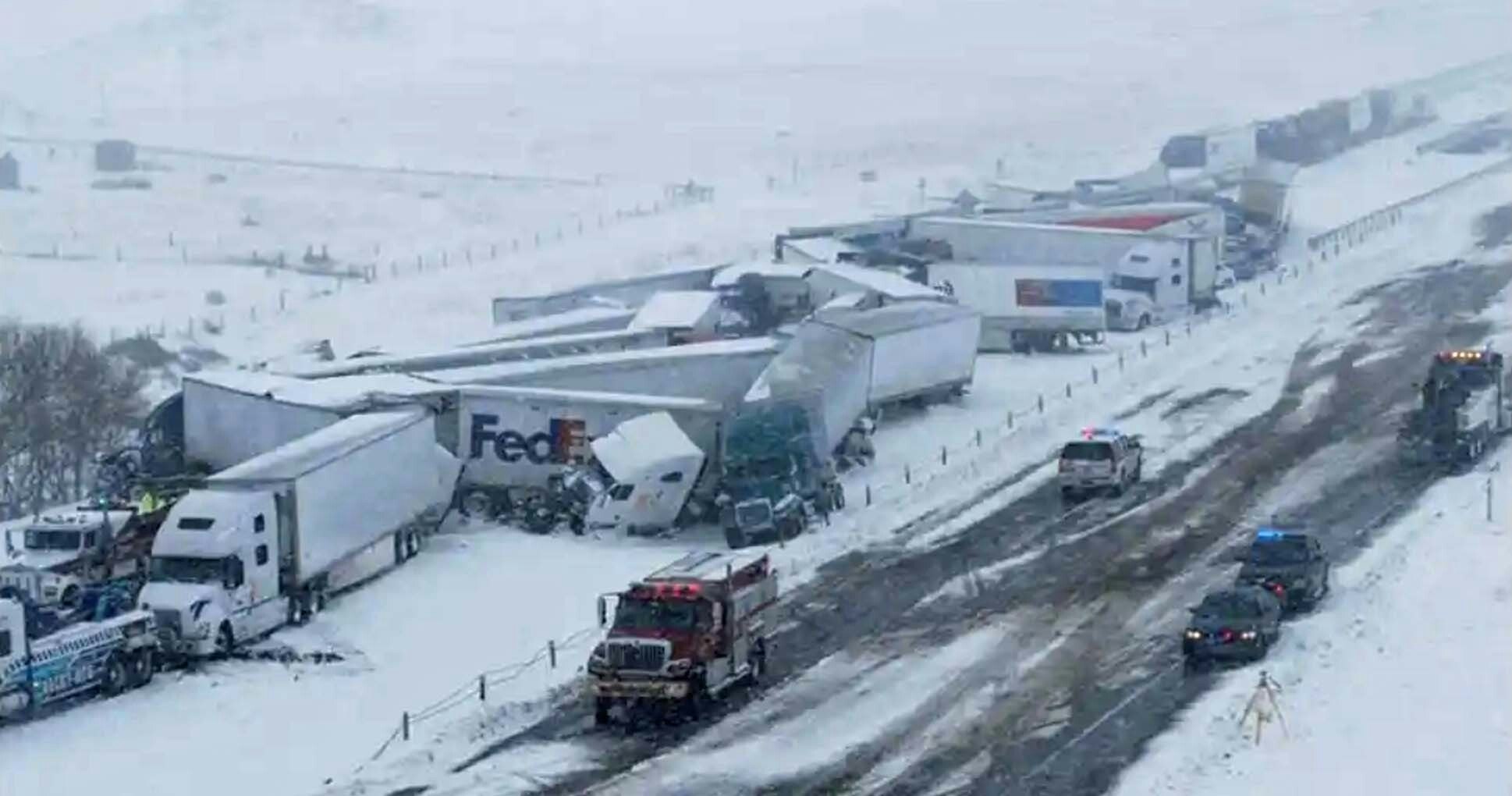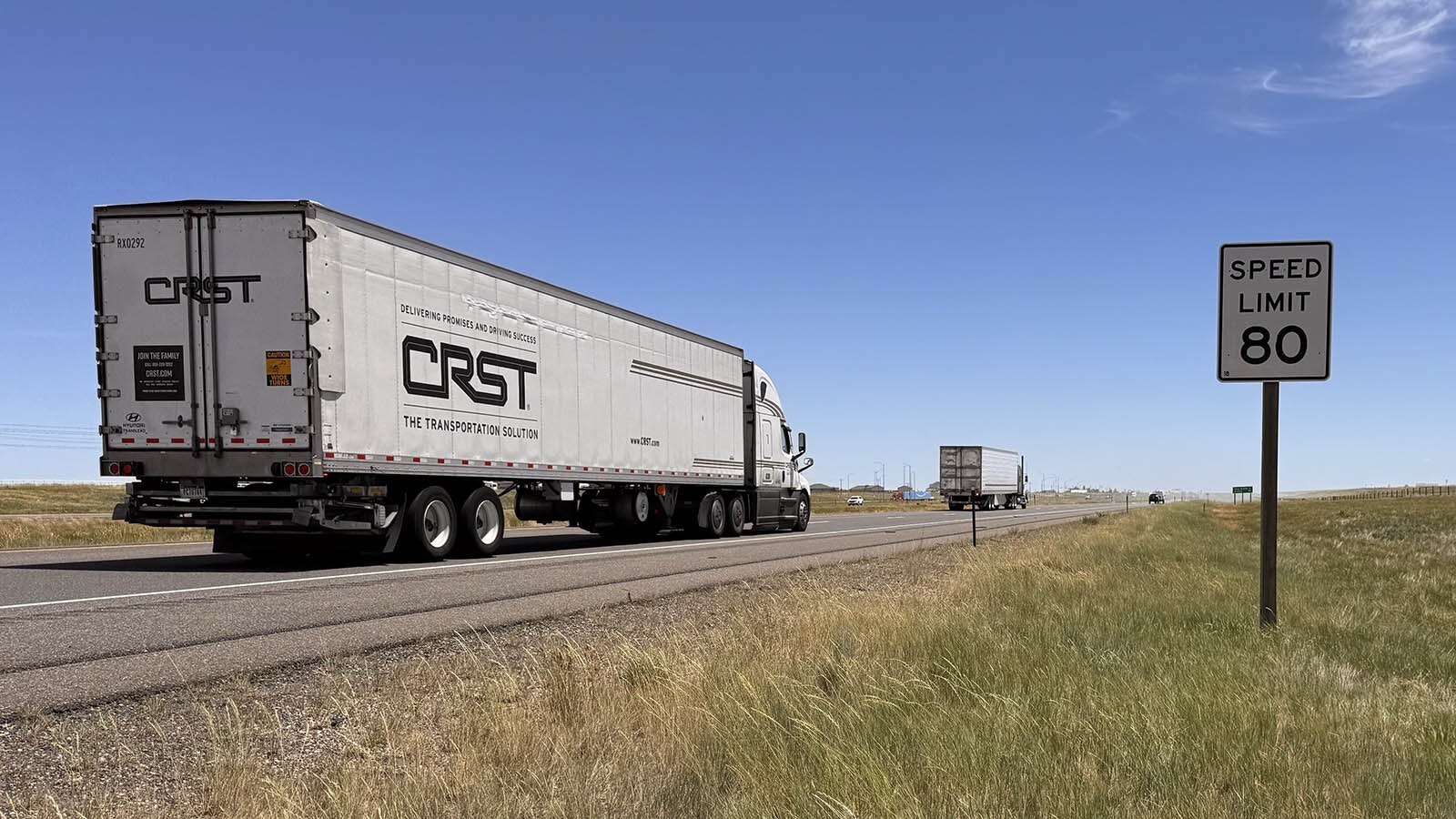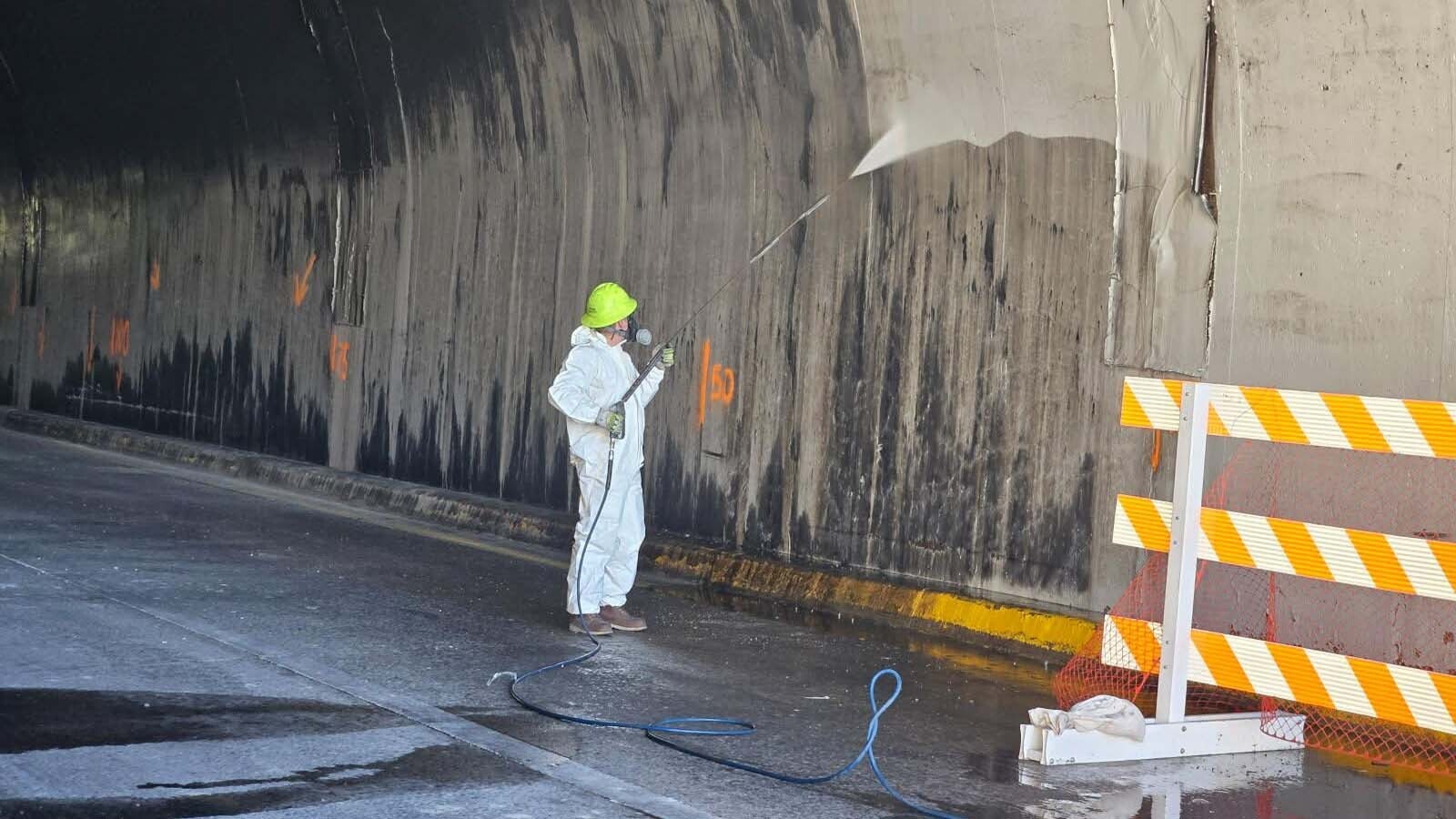With Wyoming only in the start of its most treacherous travel months of the year, travelers used to driving on Interstate 80 are preparing for the regular closures that accompany winter weather.
What the state’s Department of Transportation would really like to see, however, is an end to some of those closures by rerouting the southern Wyoming highway away from the worst of the weather.
Luke Reiner, WYDOT director, said the agency has made a unique proposal to the federal government – rerouting I-80 to avoid the part of the interstate that closes most often.
“If you look at a map, you’ll see that the old highway, Highway 30, goes further to the north, and then sort of comes down from the north into I-80,” Reiner said. “Rumor has it that when they went to build I-80, that the initial route followed the route of Highway 30. And somebody made the decision, ‘No, we’re going to move closer to these very beautiful mountains,’ to which the locals said, ‘Bad idea,’ based on weather. And it has proved to be true.”
Reiner said if the interstate could be shifted to the north, many weather-related closures could be avoided.
“Our suggestion to the federal government is to say, ‘If you want to do something for the nation’s commerce along I-80, reroute it. Follow Highway 30 — it’s about 100 miles of new interstate, the estimated cost would be about $6 billion,’” he said. “So, it’s not cheap, but our estimate is that it would dramatically reduce the number of days the interstate’s closed, because that’s the section that that kills us.”
Reiner said that essentially, I-80 all the way across Wyoming is a mountain pass.
“I mean, it’s 6,200 feet,” he said. “And so that brings its own trouble, and then of course the drastic wind events, the high wind events and blowing snow that we have in Arlington, around Elk Mountain, really caused a lot of trouble.”
According to staff at WYDOT, in February of 2021, I-80 was closed to commercial truck traffic almost 12% of the daytime hours that month; in December of 2021, the highway was closed to commercial traffic almost 16% of the month due to inclement weather.
“(I-80) is closed more to high profile light vehicles then it is closed to all traffic,” Reiner said. “And that’s an important distinction, because we cannot control the wind events.”
Beyond the impact on Wyoming traffic, Reiner pointed out that closures on this particular stretch of interstate affect the whole country.
“That wind event negatively affects the economy of our nation, because it stops the trucks,” he said. “I-80 is a route of national commerce. And when we shut it down, we’re all just very aware that it’s a big deal.”
John Waggener, whose book “Snow Chi Minh Trail” details the history of the interstate, told Cowboy State Daily the Legislature actually entertained a bill during the 1973 legislative session to close the stretch of the interstate between Laramie and Walcott Junction in the winter.
Waggener noted the state has been innovative in adopting measures to try to keep the road open as safely as possible.
“The Laramie-Walcott stretch of I-80 essentially became ground zero for wintertime highway maintenance innovation,” he said. “This road ushered in the road closure gate (the first in the nation on a major highway), the highway department began the use of the variable message sign on this road, as well as the variable speed limit.
And perhaps the biggest investment was the snow fence project,” he continued. “Though snow fences existed and were in use around the state, no major technical research had been done for snow fences. I-80 became the testing ground for what became the industry standard snow fence (the design is in use around the world.)”
In spite of the best efforts of the state’s transportation department, closures continue to plague interstate travel. And Reiner is realistic about the reality of the rerouting project coming to fruition.
“I think the chances of this happening are very, very, very, very small,” he said.





